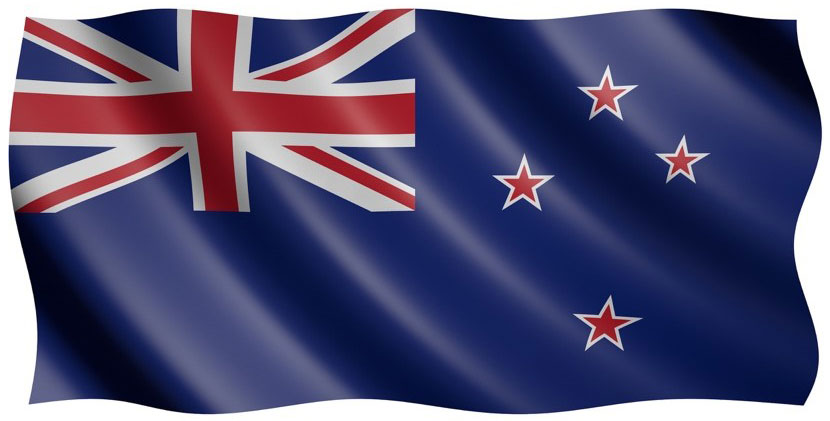
At the other end of the world, in the southern Pacific, lies a country that is more diverse, more natural, more full of natural spectacles, fjords, hobbits, friendly people and backpackers than almost any other in the world. A country that stretches across two main islands and numerous smaller islands, which has managed to preserve its cultural heritage to the present day and continues to amaze more and more tourists from all over the world every year: New Zealand.
If you don't just want to learn English during a language study trip, but also get to know the country and culture better, New Zealand, which is just about the same size as Great Britain, is an excellent choice. A few weeks language course in one of the country's language schools followed by a round trip on one or both of the main islands is the perfect way to combine learning and adventure. Because that's exactly what New Zealand is: pure adventure.
Wreck diving, swimming with dolphins, whale watching, jet boating, skydiving, skiing or snowboarding, mountain tours and climbing, caving, kitesurfing and wine tours, visiting a Maori village or Milford Sound, discovering the geysers and volcanic craters, guided hikes on the Franz Josef glacier or swimming in the Bay of Plenty - the choice of activities you can do on site is almost endless. This makes learning English in New Zealand a unique experience!
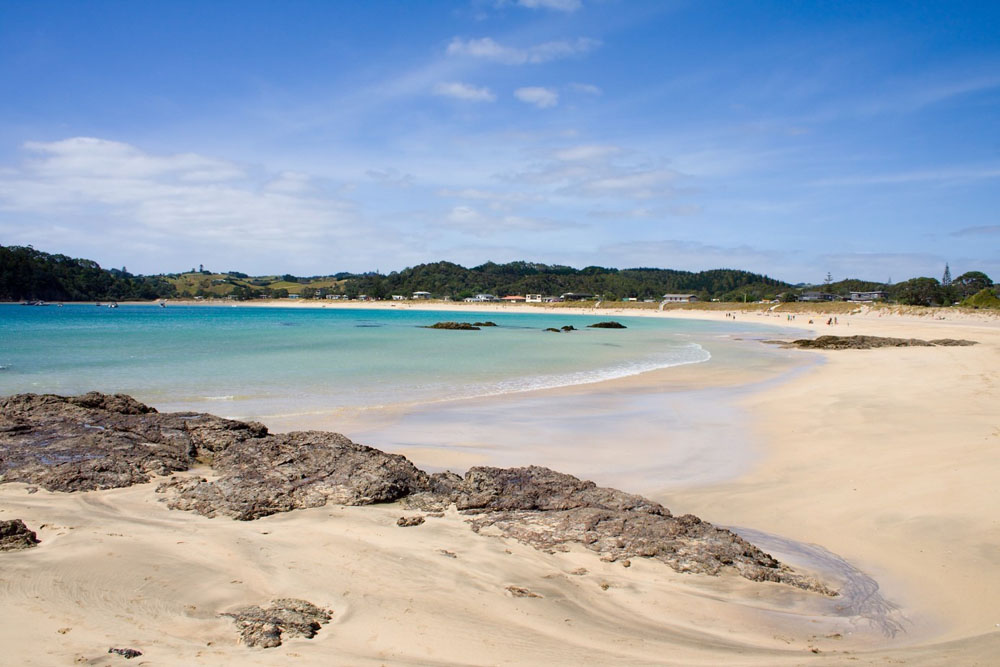
However, this diversity does not necessarily make it easy to decide on just one location for your language study trip in New Zealand. Where should your language study trip take you? To the capital Wellington on the southern tip of the North Island, with its cultural diversity, cable car, culinary delights, Mount Victoria with its breathtaking panoramic views and Houghton Bay with one of the city's most beautiful beaches? Or would you prefer to head north to Auckland, a lively metropolis and ideal starting point for dolphin tours, to the black volcanic islands in the Hauraki Gulf and the countless vineyards? Or to Napier, a city with an Art Deco city center where time seems to have stood still in the 1930s, which is blessed with a mild, dry climate and therefore produces the best wines in New Zealand?
But perhaps you are more drawn to the South Island of New Zealand, to Christchurch, Nelson or Queenstown? As the sunniest region in the country, Nelson is a magnet for creatives, water sports enthusiasts and hikers. Go on multi-day hiking tours along the Abel Tasman Track, get to know Maori art, paddle a kayak to secluded beaches or watch little penguins - all this and much more is possible in Nelson. Or would you rather go skiing in Christchurch, marvel at the incredible mountain scenery on the TranzAlpine or go whale watching off the coast? Or perhaps you'd rather head away from the coast and head inland to Queenstown, with its seemingly endless range of outdoor activities around crystal-clear Lake Wakatipu?
There are excellent language schools all over the country and in many other cities, offering you an unforgettable language study trip in New Zealand. You just have to be able to choose one...
If you were to drill a hole in the ground here in Switzerland, through the earth's core and out again, you would come across New Zealand almost exactly. The land of the long white cloud, Aotearoa, as New Zealand is called in the Maori language, lies exactly on the other side of the globe and therefore a whole day away from us. Depending on the airline, the number of stops and, ultimately, the price, the journey from Zurich takes between 24 and 34 hours. It is therefore not possible to fly to New Zealand quickly.
For your language study trip to New Zealand, you should not only bring sturdy shoes, but above all time. Time to explore the country and time for the outward and return journey. Two weeks of a language course is therefore clearly too short for a stay in this diverse country; three weeks is an absolute minimum, unless you intend to explore both islands. Four to six weeks is realistic, not only to attend a language course, but also to get to know and love the country better.
You don't have that time? Then it would be a shame to waste at least two whole days just for the trip and still not really be able to travel. In this case, save this adventure for a later date and opt instead for a destination closer to home, such as the south coast of England, Malta, Toronto or New York. Within Europe in particular, you can quickly reach your desired destination and of course learn English there too, especially in England. And the east coast of America can also be reached relatively quickly in less than nine hours. So there are plenty of alternatives. Provided, of course, that you are looking for one in the first place.
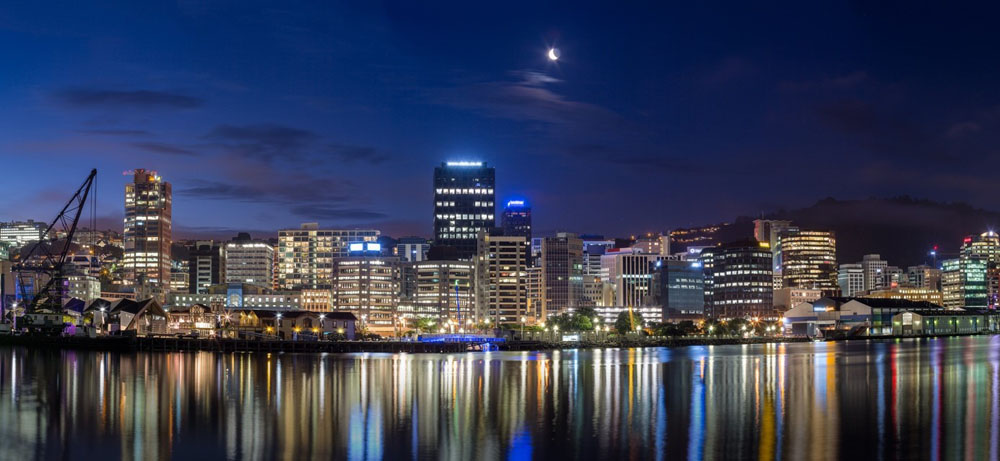
Yes, the weather. It's one of those things. Here and there. New Zealand is definitely not a country that you visit solely for its swimming opportunities - although this is of course possible in many places at the right time of year. But not always and everywhere. The weather in New Zealand can be harsh and cold, windy and icy, foggy and snowy. And then again sunny and warm at 25°C in the New Zealand summer from December to February. The further south you go, the more the temperatures drop. July is the coldest month in the country. In the north of New Zealand, tropical temperatures prevail in the summer months. On the 144 islands of the Bay of Islands and in the Northland, you can enjoy the sun well into the evening hours during this time. In the alpine regions of the South Island, on the other hand, it can easily reach minus 10°C in winter.
The best weather for a language study trip in New Zealand is between November and April, when it is usually warm, but rain is still possible at any time. Good rainwear should therefore always be included in your luggage. If you would like to go hiking during your language study trip, we recommend the months of November, February and March, when there are fewer tourists and the weather is pleasant.
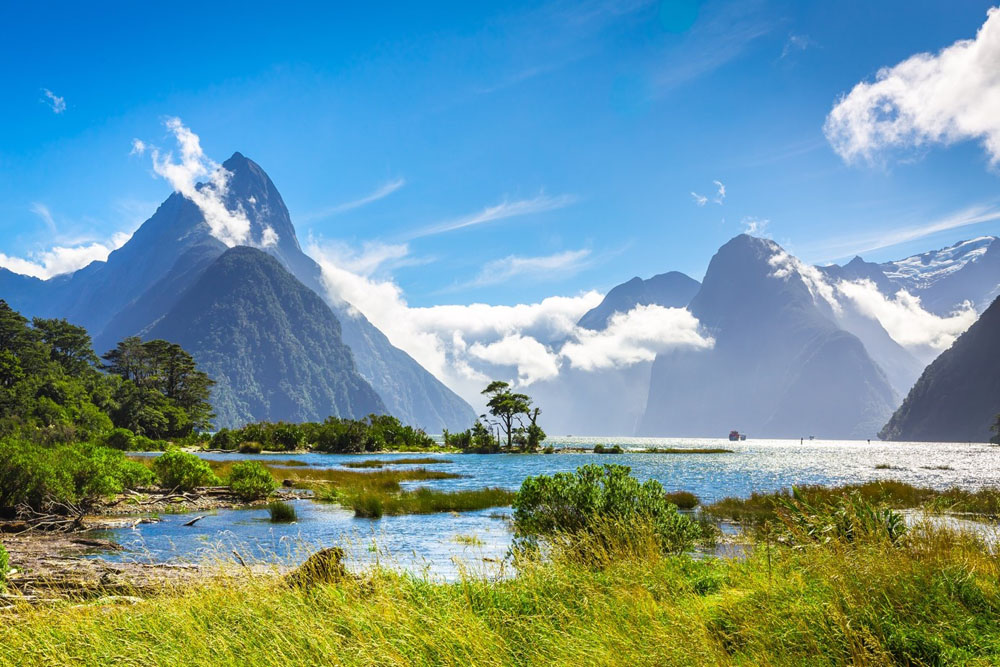
The range of courses offered by language schools in New Zealand varies depending on the language school and region and offers standard courses with a duration of 13 to 20 lessons per week as well as intensive courses with 23 to 30 lessons per week. In larger cities, language diploma courses can also be booked in preparation for the Cambridge certificates (FCE, CAE, CPE) or sometimes IELTS courses, BEC preparation courses and Business English courses. In general, it can be said that the number of lessons per week in New Zealand language schools is usually lower than in England or the USA, for example. In some cases, standard courses are offered from as little as 10 lessons per week. However, as not every language school has a large selection of different language courses, it makes sense to obtain information on as many language schools as possible in your preferred city and to compare the courses on offer in detail.
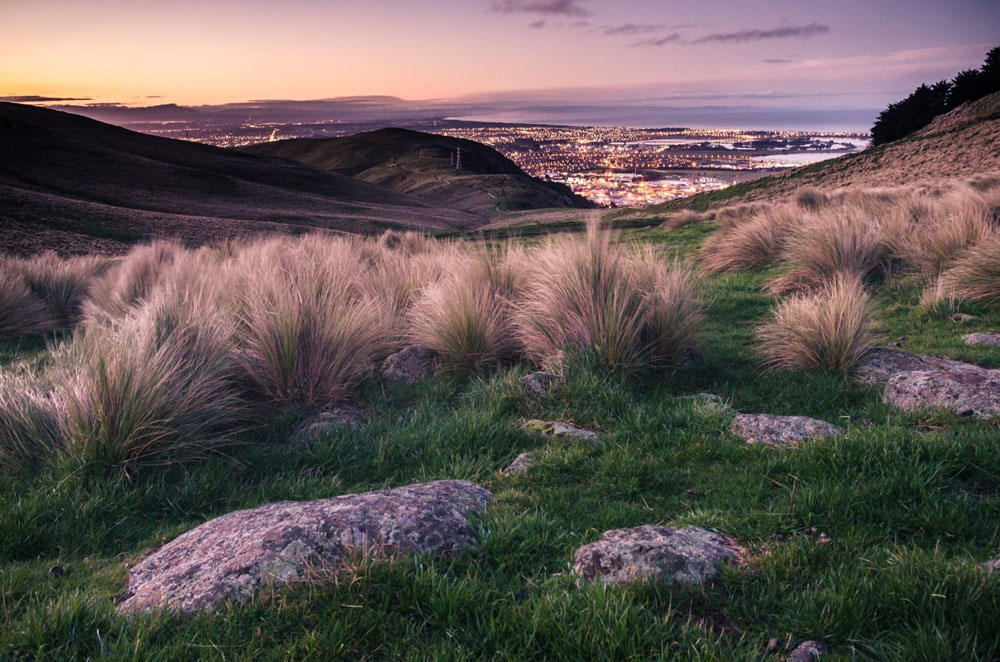
As New Zealand has signed a visa waiver agreement with Switzerland, Germany and Austria, among others, for stays of up to three months, Swiss citizens can enter the country without a visa, but with a passport valid for at least one month after the end of their stay. A return flight ticket and proof of sufficient funds - NZD 1,000 per person per month - may be required upon entry. If you want to stay in the country for longer than three months or work there, you will need a visa, such as a visitor visa or working holiday visa. You can find information about the individual formalities atNew Zealand Embassy in Geneva.
New Zealand is located on the Pacific Ring of Fire, a volcanic belt that is responsible for explosive volcanic eruptions, earthquakes and tsunamis. There are only active volcanoes in New Zealand on the North Island, most of them in the Taupo Volcanic Zone. Other geothermal activities, such as geysers and hot springs, can also be admired in this area, attracting huge numbers of visitors every year. These hot springs do not pose a safety risk, and at Lake Tekapo you can even bathe in the Tekapo Spings hot pool at 28 to 39 °C. The situation is different with earthquakes, which even today, years after the earthquakes in Christchurch in 2010 and 2011, cause massive damage in the city center and also caused major infrastructural damage in Kaikouras in 2016. These are almost impossible to predict and can also occur during a language study trip to New Zealand.
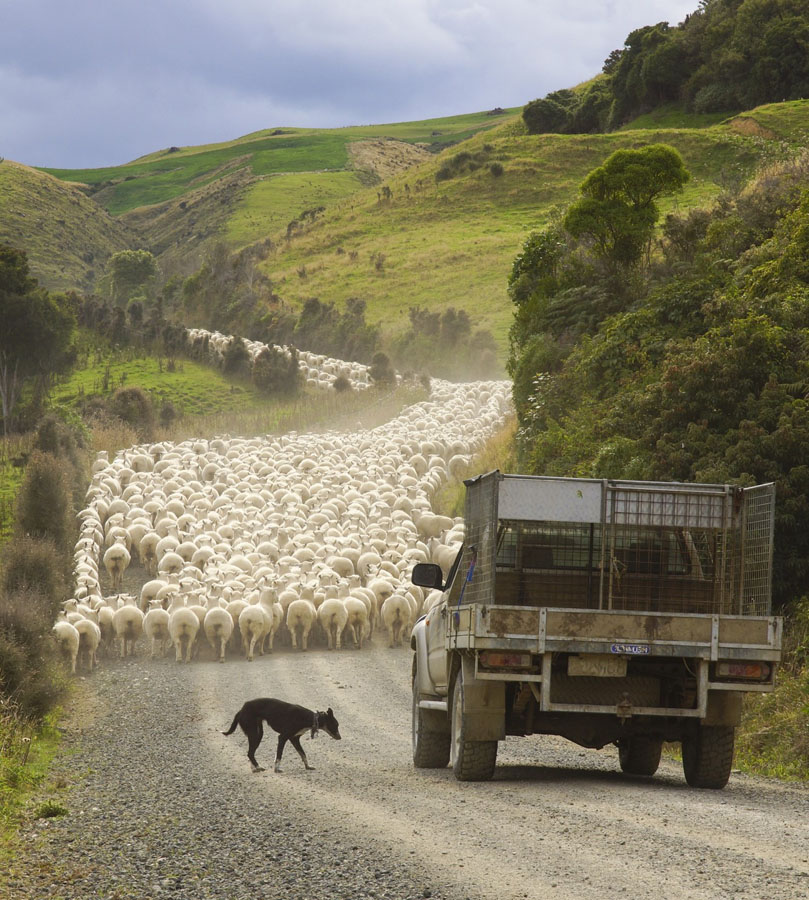
The cost of a language study trip to New Zealand naturally varies depending on the school, the language course chosen, the number of weeks, the choice of accommodation and meals. You can expect to pay around NZD 2,800 for a four-week language course with 15 lessons per week, including accommodation in a single room with a host family with half board, airport transfers and registration fees. In addition, there are the costs for the flight, the remaining meals, excursions, local travel costs, leisure time and activities. CHF 4,000 to 5,000 should therefore be calculated as a minimum for language vacations in New Zealand.
If you would like to take a slightly cheaper language course to learn English and are not necessarily tied to New Zealand, a language course in Malta or England could be a very interesting alternative. You can also find information on this here on Ausbildung-Weiterbildung.ch in the corresponding guide.